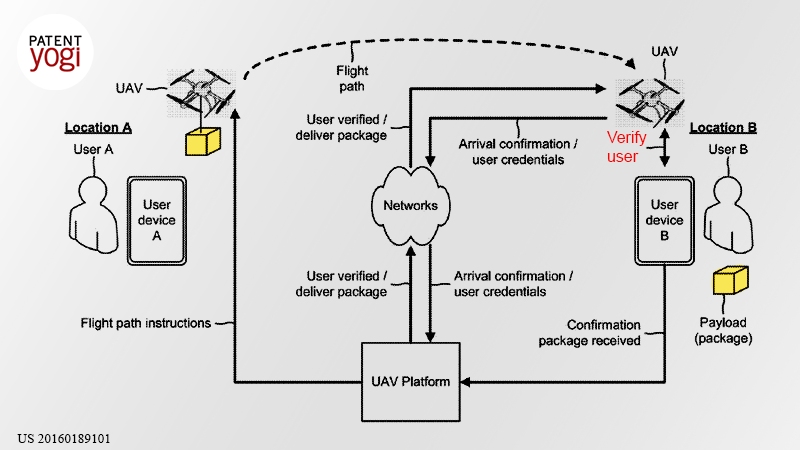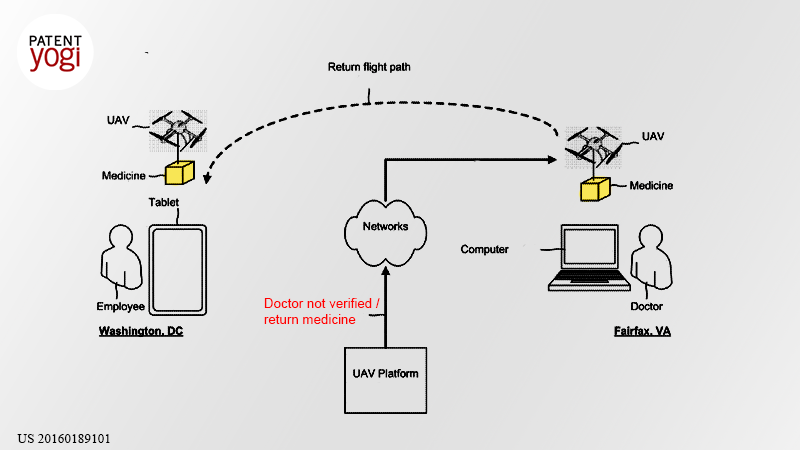Many private companies are working on drones for rapid delivery of lightweight commercial products (e.g., packages), food, medicine, etc.
These delivery systems need to meet various requirements, such as federal and state regulatory approval, public safety, reliability, individual privacy, operator training and certification, security (e.g., hacking), payload thievery, logistical challenges, etc.
Verizon is developing drones that will meet these requirements.
When a drone needs to fly from location A to a destination location (e.g., location B) in order to deliver a payload (e.g., a package) to a second user (e.g., user B) associated with a second user device (e.g., user device B).

The drone will obtain information to develop a flight plan. The information includes capability information associated with drone (e.g., thrust, battery life, etc.); weather information associated with a geographical region that includes geographical locations of location A, location B, and locations between location A and location B; air traffic information associated with the geographical region; obstacle information (e.g., buildings, mountains, etc.) associated with the geographical region; regulatory information (e.g., no fly zones, government buildings, etc.) associated with the geographical region; historical information (e.g., former flight paths, former weather, etc.) associated with the geographical region; etc.
Thereafter, the drone will fly to the destination based on flight path instructions in the flight plan. On reaching the destination, the drone may drop the package from a height without landing. Unbreakable objects, such as medicine pills may be dropped from a greater height than breakable objects, such as electronics.
Further, drone may release the package only after authenticating the user. Drone may request the user standing near the delivery site to look at the camera and smile/blink. Then the drone authenticates the user based on facial recognition. Alternatively, voice recognition may be used to authenticate the user. Still further, drone may request the user to provide a confirmation code sent to the user via text message, email, or an instant message.
For some deliveries, an approval may be required. For example, for medicine delivery, a doctor’s approval may be required. Verizon’s drone will be capable of checking if the doctor’s approval is available before delivering the medicine.

Publication number: US 20160189101
Patent Title: SECURE PAYLOAD DELIVERIES VIA UNMANNED AERIAL VEHICLES
Publication date: Jun 30, 2016
Filing date: May 20, 2014
Inventors: Igor KANTOR; Ashok N. Srivastava; Douglas M. Pasko; Hani Batla; Gurpreet Ubhi;
Original Assignee: Verizon Patent and Licensing Inc.
